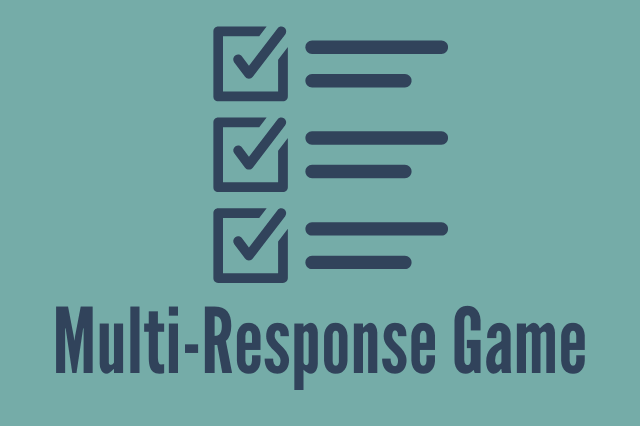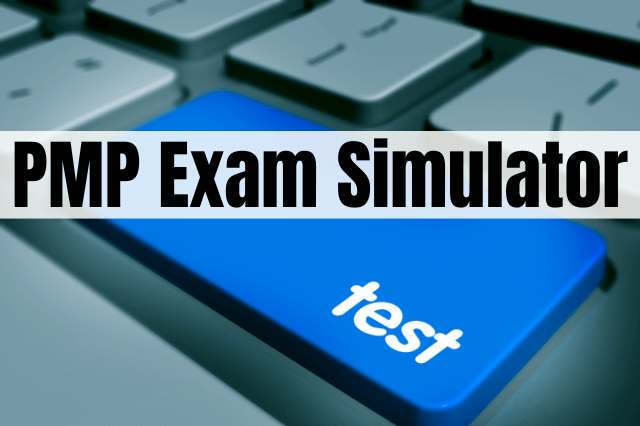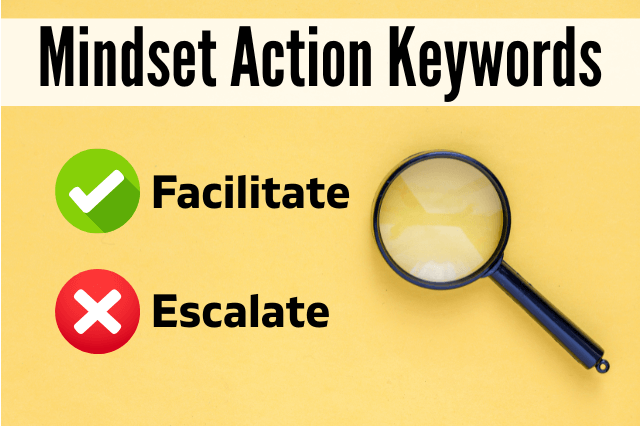Last Updated on November 4, 2025 by andrewshih
Introduction
Failing the PMP exam can be a tough pill to swallow.
The hours of preparation, the anxiety, and the financial investment all add up, making the experience emotionally taxing. You may be even at a loss and wonder what to do next.
You’re not alone.
Many have faced the same challenge and successfully retaken the exam. The key is to learn from the experience and approach your retake with a strategic plan.
Whether you failed the PMP exam or want to avoid it, this guide will help you navigate the next steps with confidence and resilience.
Understanding the Common Pitfalls for Failure
Time Management Issues: Many candidates struggle to manage their time effectively during the exam.
Lack of Understanding of the PMI Mindset: Simply memorizing answers is not enough; understanding the mindset behind the questions is crucial.
Lack of Strong Process Knowledge: Not having a thorough understanding of the processes outlined in the PMBOK Guide can be a significant barrier to passing the exam.
Over-Reliance on Rote Memorization: Focusing too much on memorizing questions and answers without grasping the underlying concepts can lead to failure.
Developing a Resilient Mindset
Importance of Mindset
- Understanding the PMI Mindset: The PMP exam often includes situational questions that require judgment and decision-making rather than straightforward memorization.
- Shifting Focus: Shifting your focus to understanding the mindset can significantly improve your performance.
Example: One candidate shared that despite scoring well on practice exams, they struggled with the actual exam questions because they focused too much on memorizing answers rather than understanding the concepts. Source
Example: Another candidate mentioned that many questions on the actual exam were unfamiliar, emphasizing the importance of conceptual understanding over rote memorization. Source
Example: Another candidate emphasized the importance of understanding the PMI mindset, noting that many questions are situational and require a deep understanding of project management principles. Source
Build a Strong Process Knowledge
Importance of Process Knowledge
- Key to Success: Process knowledge accounts for 50% of the PMP exam according to the Exam Content Outline, making it essential for passing.
- Understanding Processes: Familiarize yourself with the 49 processes outlined in the PMBOK Guide, covering Initiating, Planning, Executing, Monitoring and Controlling, and Closing.
Study Resources for Process Knowledge
- PMBOK Guide: The PMBOK Guide (6th or 7th edition) is a helpful reference for understanding the processes.
- Supplementary Materials: Use additional study resources and video tutorials to reinforce your understanding.
Example: One candidate emphasized the importance of thoroughly understanding the processes and how they interrelate. They used the PMBOK Guide extensively and supplemented it with online resources. Source
Example: Another candidate mentioned that mapping out the processes and understanding their flow helped them grasp the overall structure and improve their exam performance. Source
Effective Study Strategies
Review Your Exam Result
Understanding your strengths and weaknesses is crucial for improving your performance on the retake.
You should review the score report provided by PMI to identify which domains you performed well in and which ones need improvement. Prioritize studying the domains where you scored the lowest to improve your overall performance.
Recommended Study Materials
Using a balanced mix of study materials can help you cover all aspects of the PMP exam comprehensively. Here are some types of resources to consider:
- Video Tutorials: Visual learners can benefit from video tutorials that explain complex concepts in an engaging manner.
- Example: David McLachlan’s YouTube Videos (200 Agile Questions, 150 PMBOK 7 Scenario-Based Questions)
- Exam Simulators: Practice exams and simulators can help you get used to the exam format and time constraints.
- Example: Study Hall, TIA, and Prepcast are popular exam simulators among students, but they all have pros and cons. Depending on your weakness, one may benefit you more than the other.
- Training Courses: Structured training courses provide a guided approach to studying for the PMP exam.
- Example: David McLachlan and Andrew Ramdayal’s Udemy Courses provide comprehensive coverage of PMP topics.
- Study Guides: Study guides, notes, and cheat sheets provide a quick reference to key concepts and terms.
Example: One candidate found that using a combination of video tutorials, exam simulators, and study guides provided a comprehensive understanding and helped them tackle various types of exam questions. Source
Create a Study Plan
- Combine practice questions, mock exams, and conceptual learning to cover all exam domains comprehensively.
- Create a schedule and a study plan that allows you to review all the necessary materials without overwhelming yourself.
Time Management and Exam Techniques
During the Exam
- Pace Yourself: Allocate time to each section of the exam. Many students prefer 75/75/80 minute time allocation. Practice pacing yourself while you take mock exams and build muscle memory.
- Use Strike-Out and Highlighting Tools: Learn how to utilize strike-out and highlight tools during the exam tutorial. The highlight tool will help you focus on keywords, especially for wordy questions, while the strike-out function will help you hone into the correct answers and not waste time on the wrong ones.
- Use Breaks Wisely: Take breaks to relax and refocus.
- Flag Difficult Questions: Don’t get bogged down or frustrated when you do not know the answer. Mark the question for review and return to marked questions if time permits.
Example: One candidate shared that they managed their time by dividing the exam into sections and taking short breaks to stay focused and avoid burnout. Source
Example: Another candidate emphasized the importance of pacing and taking breaks, noting that it helped them maintain focus and manage their time effectively during the exam. Source
Overcoming Stress and Building Confidence
Stress Management Techniques
- Take Regular Breaks: Avoid burnout by taking breaks during study sessions.
- Practice Deep Breathing: Use relaxation techniques to reduce anxiety.
- Ensure Adequate Sleep: Get a good night’s sleep before the exam.
Example: One candidate found that taking regular breaks and practicing deep breathing exercises helped them manage stress and stay calm during the exam. Source
Example: Another candidate shared that ensuring adequate sleep and practicing relaxation techniques were crucial for managing their anxiety and performing well on the exam. Source
Building Confidence
- Focus on Incremental Improvements: Track your progress and celebrate small wins.
- Maintain a Positive Outlook: Use past successes as motivation.
Example: One candidate found that maintaining a positive attitude and focusing on gradual progress helped them overcome their stress and perform better on the exam. Source
Example: Another candidate shared that focusing on incremental improvements and celebrating small wins boosted their confidence and helped them stay motivated. Source
Practical Steps for Exam Preparation
Detailed Study Plan
- Review the PMI Exam Content Outline: Ensure you understand the topics covered in the exam.
- Effectively Utilize Study Materials: Effectively use resources to address your weaknesses.
- Incorporate Full-Length Mock Exams: Simulate the exam environment to build confidence and improve time management.
Example: Following a structured plan helped one candidate significantly, as they methodically covered all the necessary content and felt more prepared for the exam. Source
Example: Another candidate shared that incorporating full-length mock exams into their study plan helped them get used to the exam format and manage their time effectively. Source
Encouragement and Final Thoughts
Persistence Pays Off
- Many successful PMP holders failed their first attempt.
- Use motivational quotes and anecdotes to encourage yourself.
- Persistence and determination are key.
Example: One candidate shared that after failing twice, they finally succeeded on their third attempt, emphasizing the importance of not giving up. Source
Example: Another candidate highlighted their journey of persistence, noting that their repeated attempts and eventual success were a testament to the power of determination. Source
Community Support
- Join Online Communities: Engage with others who have faced similar challenges for support and advice. Many candidates have found comfort and practical tips from online communities like Reddit’s PMP forum. Source
Example: Engaging with the PMP community on Reddit provided valuable insights and support for one candidate, helping them overcome their challenges and succeed. Source
Conclusion
Failing the PMP exam is not the end of your journey.
Take it as a learning opportunity and approach your retake with a well-structured plan and a positive mindset. With the right preparation and support, passing the PMP exam is within your reach.
Remember, persistence and resilience are key to success. Good luck on your journey to becoming a certified Project Management Professional!
How soon can I retake the PMP exam after failing?
While you can schedule to retake the exam after 24-hours, it may depend on the availability of the exam center or online proctor. It may also be a good idea to take a short break and give you sufficient time to address the weakness area and prepare more effectively for your next attempt.
How many times can I retake the PMP exam?
You are allowed to take the PMP exam up to three times within your one-year eligibility period. If you do not pass the exam after three attempts within this period, you must wait one year from the date of your last attempt before you can reapply for the PMP certification.
Do I need to pay the exam fee again for a retake?
Yes, you will need to pay a retake fee for each attempt. The fee for PMI members is $275, and for non-members, it is $375. Use the PMP cost calculator for another currency.
What strategies can help reduce exam anxiety?
Regular Breaks: Take regular breaks during your study sessions to avoid burnout.
Deep Breathing Exercises: Practice relaxation techniques such as deep breathing to reduce anxiety.
Positive Reinforcement: Maintain a positive mindset and remind yourself of past successes.



